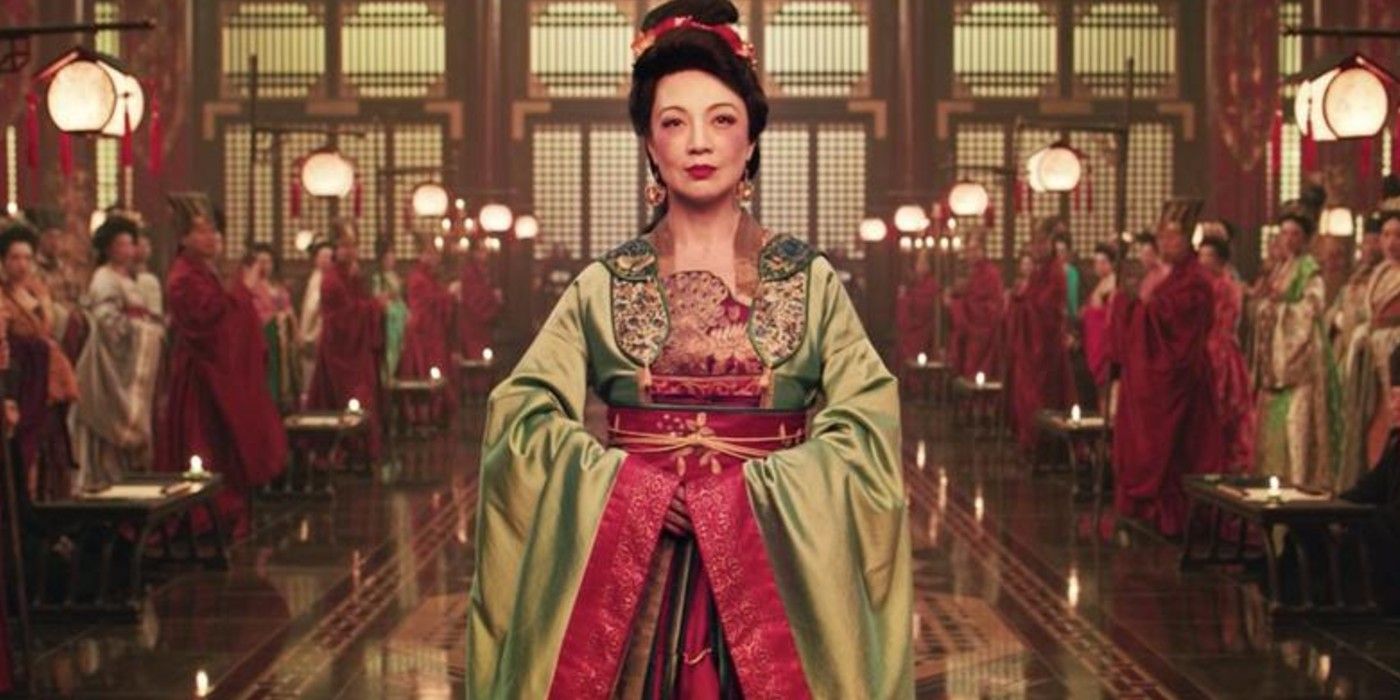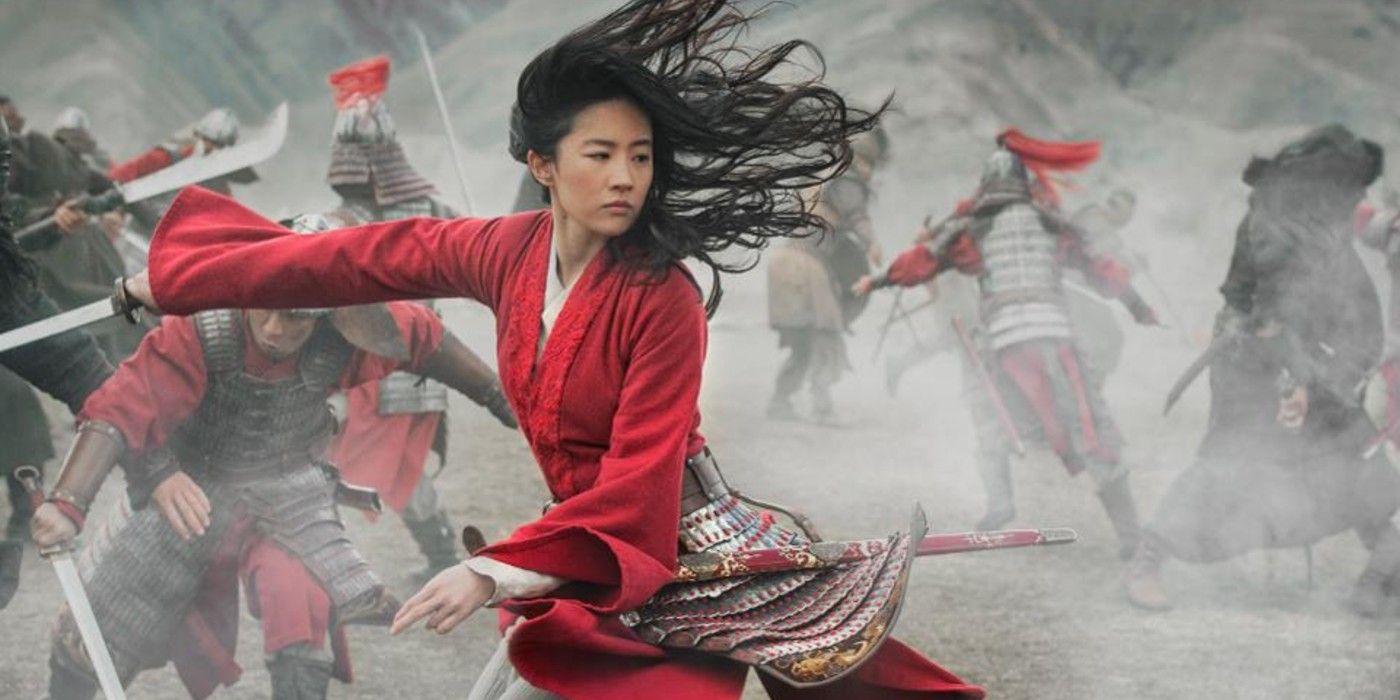Disney's remake of the 1998 animated classic Mulan may aim to update the story surrounding its titular heroine, but that didn't stop creators from dropping a series of charming Easter eggs - including a cameo from the original voice actress for Mulan, Ming-Na Wen.
Wen is no stranger to the House of Mouse. After lending her voice to Disney's honorable warrior in 1998, Wen has been a fixture of many popular properties associated with the company - most notable her seven-year run on Agents of S.H.I.E.L.D. and a supporting role in last season's The Mandalorian (with rumors that she may return in season 2). But in the final minutes of the live-action Mulan, viewers see Wen, here credited simply as "Esteemed Guest," tasked with presenting the honorable Mulan (played with blend of grit and grace by Liu Yufei) to the Emperor (Jet Li). Through clever staging of the scene, this cameo goes beyond a simple homage.
Cutting directly from the preceding scene in which the Emperor asks a victorious Mulan her name, the audience is transported to the regal Emperor's Palace and the ceremonial celebration within. A tracking shot hovers on a woman walking toward the throne - adorned with traditional Chinese dress and makeup, not unlike what Mulan wears earlier in the film's first act. This leads the audience to assume that the woman (whom the camera follows from behind) is Mulan herself, but as the camera cuts to the woman's face she is revealed to be a radiant Wen, who announces, "Your Imperial Highness, Huan Mulan." The film's heroine then emerges from behind her - hair down and dressed as she was for the film's climactic battle.
While the moment can be interpreted as a simple passing of the torch, director Niki Caro also uses this moment to show how Liu's Mulan has found her way through society's expectations of her. It's a bait-and-switch in which it at first seems like, now that the battle is over, she's conformed to an ideal picture of femininity that would make the Matchmaker proud. Instead, she remains true to herself.
Though the original Mulan was beloved by many growing up, some more disappointed by the ending in which Mulan declines the Emperor's offer to be his advisor, and instead chooses to return home to her family. This is exacerbated when Mulan's story is wrapped up by neatly (and hastily) pairing her with a love interest, Shang, who notably does not appear in the live-action film. In Caro's remake Mulan also initially rejects an offer from the Emperor, to serve as an officer in his guard. But instead of the movie's final scene being Shang invited in for dinner, Mulan is visited at her family home by Commander Tung and the offer is reiterated with the gift of a sword. The film ends there, with Mulan reconsidering the offer, so that audiences can make up their own minds about whether or not she'll take it.
The 2020 remake also makes other changes and additions, emphasizing the power of Mulan's chi and likening her to the ostracized sorceress, Xian Lang. It centers its heroine at the heart of a "Chosen One" narrative, and effectively forges a new direction for the character. The new film also takes pains to link power with truth and self-acceptance, particularly when Xian Lang tells Mulan that her chi has been blocked since she began disguising herself. The necessity of "truth" is reiterated heavily throughout the film and it's therefore refreshing to see Mulan presented to the Emperor not as the idealized picture of femininity, nor the male soldier that she impersonated for much of the movie, but instead an uncompromising version of herself. Since Wen's version of the character first paved the way for this moment, it's very fitting for her to have a cameo within it.
Mulan (2020) Review: A Good, But Not Great Disney Adaptation


